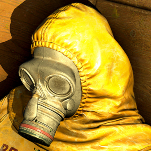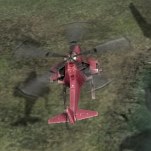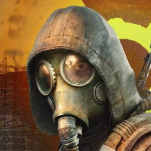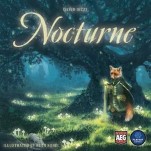Call of Duty: WWII Is a Disjointed Celebration of Combat
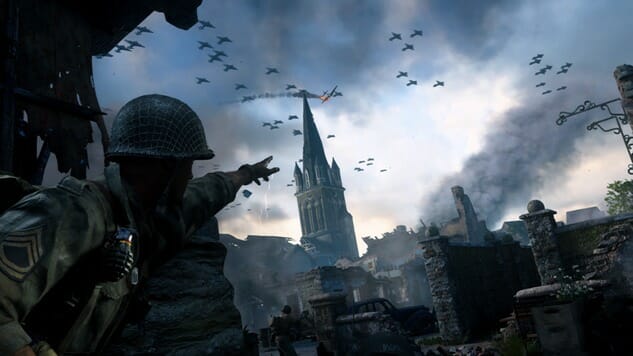
Call of Duty: WWII’s campaign takes a wonderful detour a few missions in. The point of view passes from Private Daniels, the brave Texan who is our main guide through the Allies’ push from Normandy through Europe in 1944, to Rousseau, the French Resistance fighter whose husband, son and parents were murdered by the Nazis. Instead of shooting her way through a series of Hollywood set pieces, Rousseau infiltrates a Nazi garrison in disguise, seeking out a spy with help of a fake ID and a secret pass code. Espionage and stealth briefly become the focus, as you have to find the right German officer while avoiding suspicion, and then sneak out as invisibly as possible. During these moments WWII turns into a superior version of Velvet Assassin, the lackluster 2009 stealth game with a great premise. It also becomes a more interesting and entertaining version of itself.
Call of Duty’s return to World War II isn’t inherently a problem. Since the first Modern Warfare recreated the series, it has become increasingly absurd and overly devoted to glorifying warfare and the military. World War II is one of the two or three historical conflicts left that can be justifiably glorified, so returning to the 1940s negates some of the more problematic aspects of these games. After all, nobody reasonable or educated can find fault with perpetrating violence upon Nazis.
The problem with WWII is the way it approaches the war. Instead of focusing on topics and themes that have been underexplored in games, like, say, the French Resistance, it dives into the most obvious business it can get into. It starts with another Normandy invasion, although one that lacks the impact of D-Days we’ve seen and played through before. Our crew of soldiers represents a cross-section of (almost entirely white) Depression-era America, a collection of familiar characters and archetypes that are only memorable to the extent that you recognize the faces of the actors that portray them. Attempts to create drama through cut-scenes and interactive “heroic actions” (where you have a brief window of time to save a fellow soldier) largely make no impression—it’s all war film boilerplate, dulled even further by listless voice performances.
These narrative gaps undermine a mechanically proficient shooter that might be the most purely enjoyable Call of Duty in years. That’s usually how it goes with these games: sharply designed action scenes are built up by shallow stories full of questionable decisions and uncomfortable themes. Unlike the utterly unrealistic and fanciful action blurts of late, WWII initially at least tries to resemble a more grounded and believable military endeavor. You’re still a he-man supersoldier who personally slaughters entire divisions of Nazis and can almost fully heal from multiple bullet wounds with a first aid kit (yes, WWII does away with the last decade or so of self-regenerating health and returns to the health packs of yore), but the technology used is real and period appropriate. The guns are recognizable as real guns, and have a weight to them that isn’t often found in modern shooters. There’s a tangible diversity to these weapons, as well—every gun and every type feels different and unique.
Ostensibly the game’s multiplayer modes would single out those mechanical strengths and eliminate its narrative weaknesses. We’ve focused on the campaign in this review and during our time with the game, but WWII has been beset with notorious online issues so far. We haven’t noticed them during our online attempts, but they sound widespread. Activision and Sledgehammer are working to fix these issues, but until then proceed with caution when it comes to the game’s multiplayer.
We should also mention the Nazi Zombies mode. The fact that it tries to coexist with a very earnest and reality-based World War II story is another example of how videogames don’t really take their own stories that seriously. It’s another cooperative shoot-’em-up with waves of zombies to plow through, although it’s a little bit deeper and more story-focused than previous installments. It has classes this time? And celebrity voices, including David Tennant, Élodie Yung and Ving Rhames. Despite the added depth, it’s still a slight, goofy aside to the campaign and online suite.
WWII, like the entire Call of Duty series, isn’t a unified piece of work. The campaign, multiplayer modes and weird sci-fi co-op jaunt are all so different that they prevent any kind of thematic unity beyond the basic celebration of combat. The campaign focuses on the valiant pursuit of freedom from tyranny, the online (when it works) is once again based on personal growth and progression through experience points and loot drops, and then the zombie lark is pure pulp fantasy. This is standard for games, of course, but this clash of tones and themes is rarely as glaring as with WWII. And because none of these disparate components feel fresh or new on their own, it makes the overall package feel even less like the sum of its parts. Perhaps with a more inspired direction, one similar to that scene where Rousseau tensely explores a Nazi headquarters, the seams wouldn’t be as glaring.
Call of Duty: WWII was developed by Sledgehammer Games and published by Activision. Our review is based on the PlayStation 4 version. It is also available for the Xbox One and PC.
Garrett Martin edits Paste’s games and comedy sections. He’s on Twitter @grmartin.
-

-

-

-

-

-

-

-

-

-

-

-

-

-

-

-

-

-

-

-

-

-

-

-

-

-

-

-

-

-

-

-

-

-

-

-

-

-

-

-



















